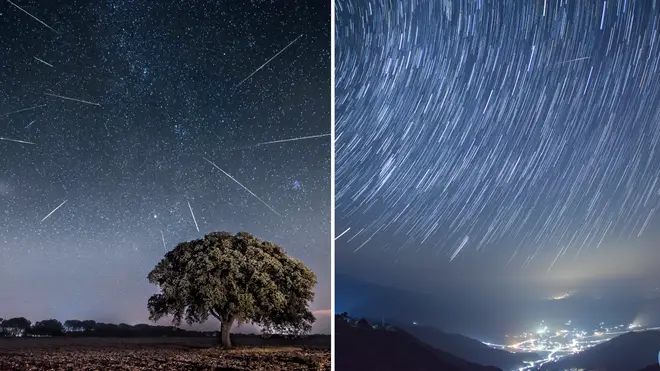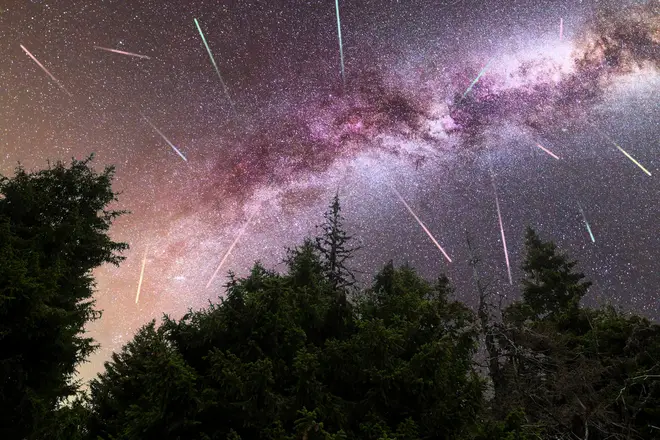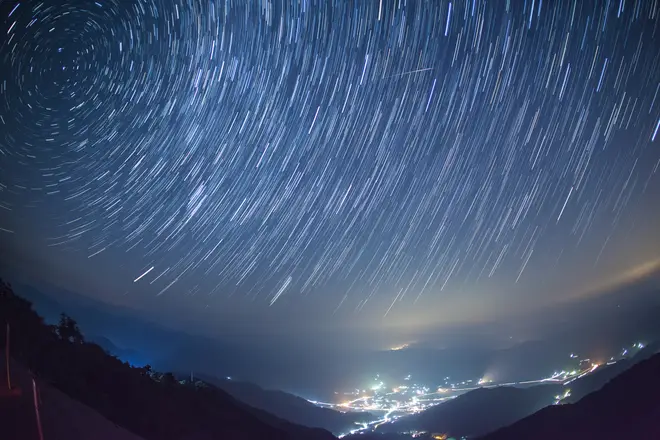
Clive Bull 1am - 4am
12 August 2023, 19:30 | Updated: 12 August 2023, 19:32

The Perseid meteor shower is set to light up the UK night sky in one of the most dramatic displays of the year.
The shower is one of the highlights of the year for many sky gazers due to its high hourly rate and bright meteors, caused by the Earth slamming into the debris left behind by comet 109P/Swift-Tuttle in July and August every year.
This year the event is expected to peak during the night of August 12, into the early hours of August 13, with up to 100 shooting stars an hour.
It is called the Perseids because the meteors seem to originate from the constellation of Perseus.

Read More: Exact date it will hit 32C as Met Office predicts UK will be hotter than LA next week
Read More: Rock that smashed through house roof was rare meteorite, say scientists
The meteors are best viewed from the northern hemisphere, and in ideal conditions with no clouds or light pollution.
The shower is considered one of the best of the year because it produces bright meteors and is one of the most active.
There is also a high chance of seeing fireballs, which are very bright meteors, as well as meteors with long trains.

According to the Royal Astronomical Society, meteor showers are easy to watch and no special equipment is needed.
They are best observed with the naked eye, and a reclining chair and a blanket make viewing much more comfortable.
If clouds make viewing impossible on the peak night itself, the shower will continue until August 24.
The radiant of the Perseids is actually always above the horizon as seen from the UK, which means observers should be able to see some meteors as soon as the Sun sets.
Experts suggest it is favourable to try to spot meteors when the Moon is below the horizon or when it is in its crescent phase, because otherwise it acts as natural light pollution and will prevent the fainter meteors from being visible.